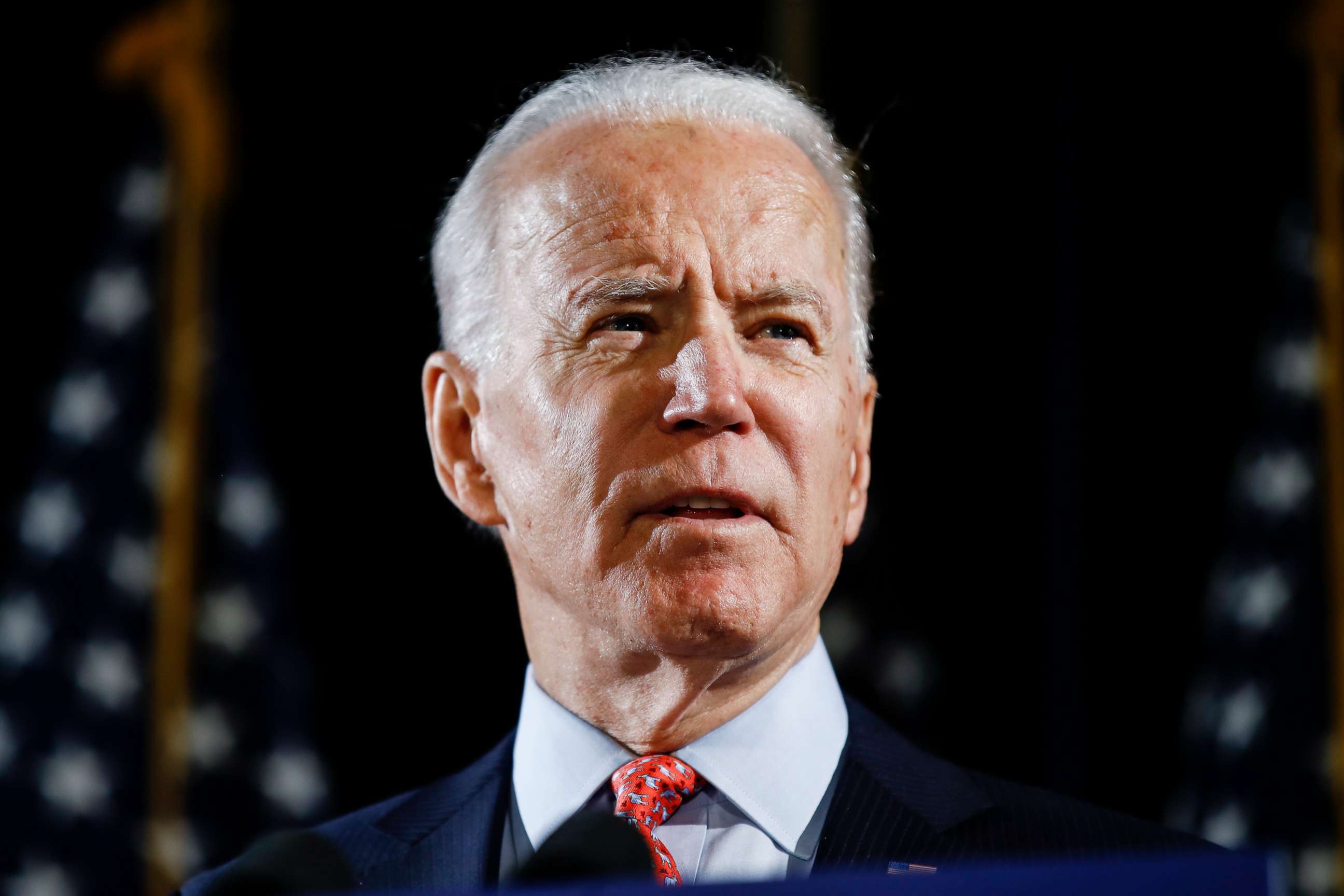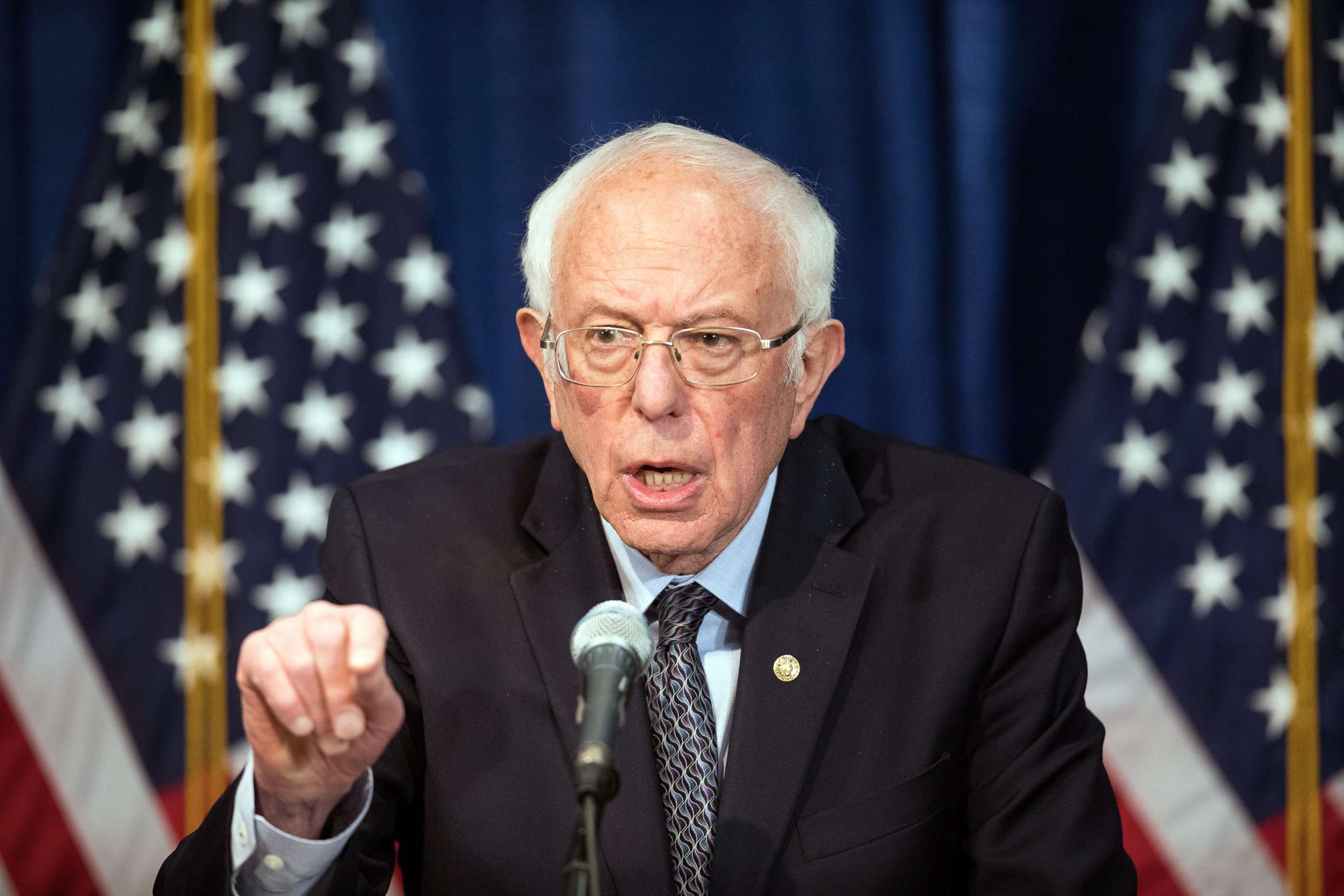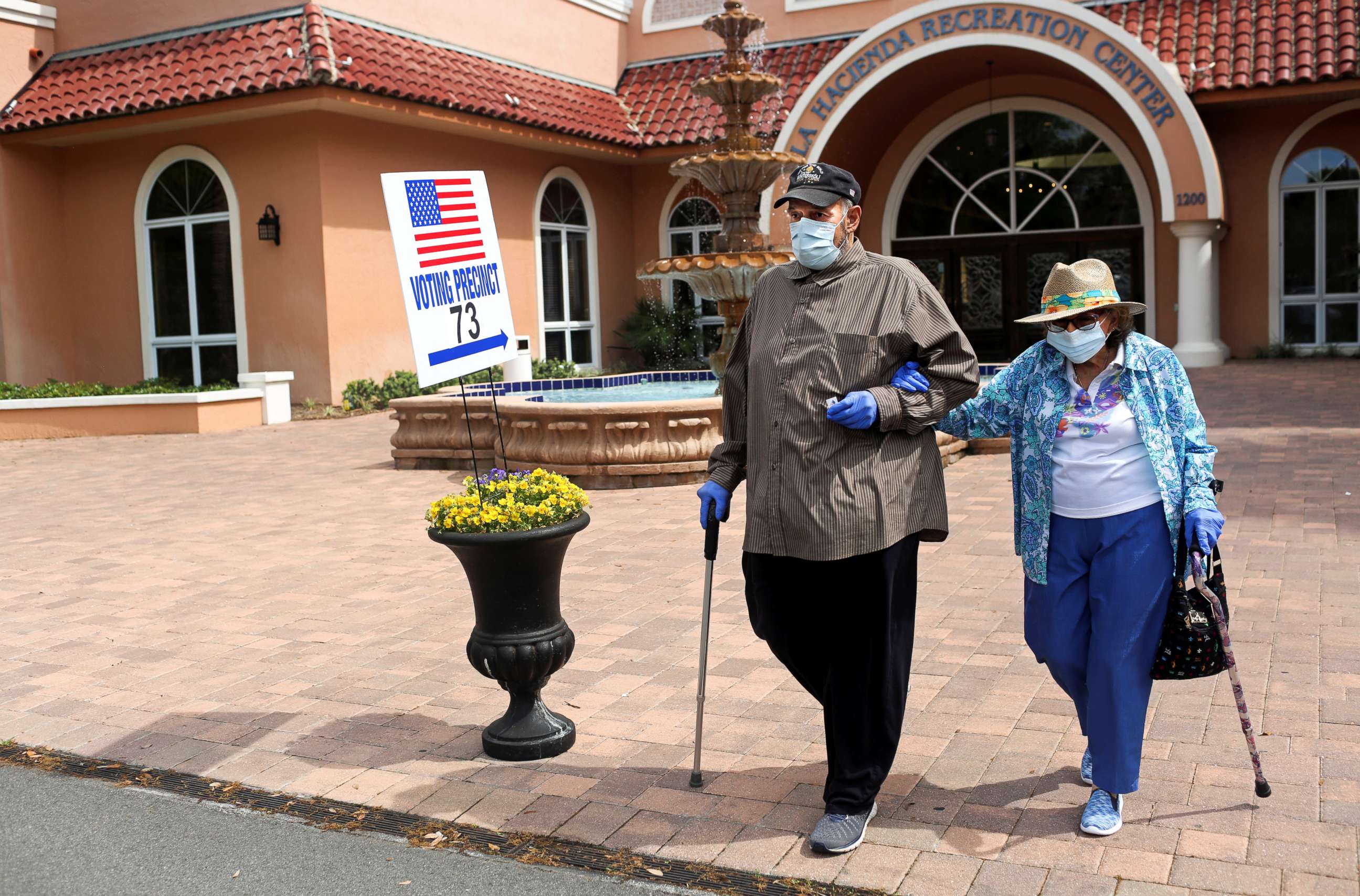The Note: Biden gets closer to nomination, but clinching may have to wait longer
States that delayed voting keep Biden short of the 1,991 delegates needed to win
The TAKE with Rick Klein
Joe Biden just got closer to becoming the Democratic nominee. But his goal of clinching the nomination may actually be moving farther away.
Tuesday's races marked big wins for the former vice president, whose delegate lead is now in the realm of being virtually insurmountable. Nothing -- not even the national emergency-- has slowed a remarkable run that leaves him on the precipice of the nomination.

But an election that didn't happen -- in Ohio -- kept a chunk of delegates off the table. And delays rolling in from other states open up a hole in the primary voting schedule that appear likely to push back opportunities for Biden to go over the top with the 1,991 delegates he needs to clinch the nomination.
Sen. Bernie Sanders didn't even mention the latest voting in his livestream with supporters late Tuesday. He will be pressured to exit the race, but perhaps not so much as he might have been if the nation wasn't coping with far more pressing concerns for the foreseeable future.
In a typical year, Biden's campaign would be anxious to sew things up. But recent days have exposed so many fragilities and caused so many anxieties that the march to a delegate majority hardly ranks as a top concern.
The RUNDOWN with MaryAlice Parks
With Biden's delegate lead only increasing, the calls within the Democratic Party for Sanders to bow out will likely only increase now too.
And of course it is hard to know how the current health care and economic crisis gripping the country could sway his decision-making.
On the one hand, the crisis could, in fact, further motivate Sanders to stay in the race. The White House is openly discussing the need to provide health care to the uninsured, waive copays and other medical fees for those most in need and provide paid sick leave to all. With that backdrop, it is hard to imagine a politician like Sanders, who has been pushing those issues for 30 years, wrapping his campaign now.

One of Sanders' senior staffers wrote online Tuesday night, "Many keep expecting the potential for mass death to shake our system into fundamental reforms -- but let's be honest: few fundamental reforms have come as we've lived in a country where tens of thousands of people die every single year because they can't afford medical care."
On the other hand, if the Senate is going to look for ways to try to settle the economy and shore up the bank accounts of working Americans, Sanders may want to be a leader on the floor in Congress in that fight. Plus, with so many states pushing their primaries further into the spring and summer, Sanders may feel that the price of staying in -- both the literal price as well as the potential toll on a likely Biden nomination -- is getting greater by the day.
The TIP with Kendall Karson
Democratic enthusiasm still broke through Tuesday night -- even amidst a global pandemic shutting down restaurants, places of work and the like -- largely on the strength of early voting.
While vote tallies are still coming in from Tuesday's contests, two states have already exceeded 2016's turnout total -- keeping up a prevalent trend this cycle that's held steady throughout the previous contests.

In Florida, the largest and most delegate-rich of the three states that voted this week, this year's turnout landed at 1,727,488, slightly over 2016's 1,709,183 but slightly shy of 2008's 1,749,920. Most of this year's rise in turnout rode on the back of early voters, with over 1.1 million Democrats opting to either vote in-person or by mail, early. In Arizona, Democrats started the night by setting a new record on early ballots alone, given that 480,000 ballots were cast early, which outpaces both 2016 and 2008's totals.
But it's not the same story in every state. In Illinois -- where so far 1,452,867 Democrats showed up -- with less than 5% of the vote still outstanding, turnout this year is likely to remain short of 2016 and 2008, when more than 2 million voters cast their ballots in both years.
THE PLAYLIST
ABC News' "Start Here" Podcast. Wednesday morning's episode features ABC News Chief National correspondent Matt Gutman and ABC News Senior Investigative reporter Aaron Katersky who discuss how New York and San Francisco are planning to contain the novel coronavirus. ABC News' Trish Turner explains where the massive government stimulus package stands. Then, ABC News Political Director Rick Klein tells us how the Democratic primary played out Tuesday night amid strange voting circumstances. http://apple.co/2HPocUL
ABC News' "Powerhouse Politics" Podcast. Former New Jersey Governor and ABC News Contributor Chris Christie talks with ABC News Political Director Rick Klein and ABC News Chief White House Correspondent Jonathan Karl about the president's response to the novel coronavirus crisis. https://apple.co/3d7EC6U
WHAT YOU NEED TO KNOW TODAY
Download the ABC News app and select "The Note" as an item of interest to receive the day's sharpest political analysis.
The Note is a daily ABC News feature that highlights the day's top stories in politics. Please check back tomorrow for the latest.



